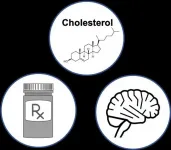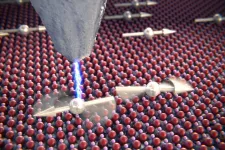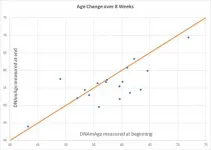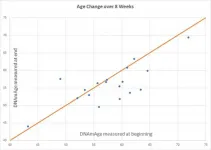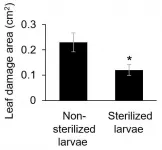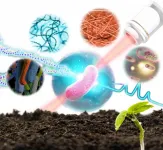How more inclusive lab meetings lead to better science
2021-05-27
(Press-News.org) A new paper, published recently in PLOS Computational Biology by a team including UMass Amherst researchers, seeks to help scientists structure their lab-group meetings so that they are more inclusive, more productive and, ultimately, lead to better science.
The word "scientist" might conjure images of lab-coated researchers tending bubbling beakers or building supercomputers, but an enormous amount of scientific work takes place around a conference table during weekly group meetings. "There is plenty of good research showing that diversity and inclusion make the science itself better," says Kadambari Devarajan, one of the paper's co-lead authors and a graduate student in organismic and evolutionary biology as well as environmental conservation. Such diversity and inclusion starts with the structure of the lab meeting itself. Kadambari and her colleagues developed a set of ten guiding principles that help to cultivate lab environments that are inclusive as well productive lab environment, which range from the practical--"Rule 2: Identify roles and rules" and "Rule 6: Manage conflict"--to the interpersonal: "Rule 5: Be respectful and practice civility" and "Rule 9: Be aware of biases."
Each of the ten rules came out of the team's own working practice, honed by years of use, in Toni Lyn Morelli's lab, whose members hail from countries around the globe and are in various stages of their careers. Morelli (Northeast Climate Adaptation Science Center and US Geological Survey), a co-author of the paper and a research ecologist affiliated with the environmental conservation department as well as the organismic and evolutionary biology program, notes that though diversity and inclusion are of interest far beyond the realm of science, there's not always a practical guide to go by. "How does one create a diverse and inclusive lab that enables all members to bring their whole selves? What week-to-week actions can reinforce the sense of community and increase an individual's, and thus the whole group's, productivity?" She hopes that these guidelines can act as inspiration for her graduate students, as well as other lab groups, to build similar and even better spaces in the future.
When answers to practical questions such as these are approached deliberately, the result can be powerful and long-lasting. "Lab meetings can be some of the most memorable and rewarding moments in our academic careers," write the authors, and can help "increase diversity in science, boost scientific creativity, and facilitate problem solving."
Perhaps most powerfully, the paper's authors argue that what happens in the lab doesn't just stay in the lab--it ripples out into society at large. "Science isn't isolated from what's happening outside of academia," says Nigel Golden, co-lead author, graduate student in environmental conservation, and a fellow at the Northeast Climate Adaptation Science Center, "the world is influencing our science, and our science is influencing the rest of the world."
Devarajan, Morelli and Golden have also all been recognized as leaders in the effort to diversify science. Devarajan is a recipient of the organismic and evolutionary biology program's Justice, Equity, Diversity, and Inclusion Fellowship, Morelli has received the department of environmental conservation's Diversity, Equity, and Inclusion award, and Golden is a recipient of the College of Natural Science's award for outstanding achievement in inclusion and excellence.
INFORMATION:
[Attachments] See images for this press release:

ELSE PRESS RELEASES FROM THIS DATE:
2021-05-27
The blood-brain barrier is impermeable to cholesterol, yet high blood cholesterol is associated with increased risk of Alzheimer's disease and vascular dementia. However, the underlying mechanisms mediating this relationship are poorly understood. A study published in the open-access journal PLOS Medicine by Vijay Varma and colleagues at the National Institute on Aging, part of the National Institutes of Health, in Baltimore, Maryland, suggests that disturbances in the conversion of cholesterol to bile acids (called cholesterol catabolism) may play a role in the development of dementia.
Little ...
2021-05-27
Quantum systems are considered extremely fragile. Even the smallest interactions with the environment can result in the loss of sensitive quantum effects. In the renowned journal Science, however, researchers from TU Delft, RWTH Aachen University and Forschungszentrum Jülich now present an experiment in which a quantum system consisting of two coupled atoms behaves surprisingly stable under electron bombardment. The experiment provide an indication that special quantum states might be realised in a quantum computer more easily than previously thought.
The so-called decoherence is one of the greatest enemies of the quantum physicist. Experts understand by this the decay of quantum states. This inevitably occurs when the system interacts with its environment. In ...
2021-05-27
A groundbreaking clinical trial shows we can reduce biological age (as measured by the Horvath 2013 DNAmAge clock) by more than three years in only eight weeks with diet and lifestyle through balancing DNA methylation. A first-of-its-kind, peer-reviewed study provides scientific evidence that lifestyle and diet changes can deliver immediate and rapid reduction of our biological age. Since aging is the primary driver of chronic disease, this reduction has the power to help us live better, longer. The study, released on April 12, utilized a randomized controlled clinical trial conducted among 43 healthy adult males between the ages of 50-72. The 8-week treatment program included diet, sleep, exercise and relaxation ...
2021-05-27
The bacterium, which they named Candidatus Phytoplasma dypsidis was found to cause a fatal wilt disease. This new discovery was reported in the International Journal of Systematic and Evolutionary Microbiology.
In 2016, several ornamental palms within a conservatory in the Cairns Botanic Gardens, Queensland, died mysteriously. A sample was taken from one of the diseased plants and investigated by Dr Richard Davis and colleagues from the Australian Government Department of Agriculture, Water and the Environment, and state and local government. They compared the characteristics and genome of the bacterium identified as the cause of the disease and found the ...
2021-05-27
Study Exploring Optimization of Duplex Velocity Criteria for Diagnosis of Internal Carotid Artery (ICA) Stenosis Published Online
Online first in Vascular Medicine, researchers from the Intersocietal Accreditation Commission (IAC) Vascular Testing division report findings of their multi-centered study of duplex ultrasound for diagnosis of internal carotid artery (ICA) stenosis. 1
The study was developed in response to wide variability in the diagnostic criteria used to classify severity of ICA stenosis across vascular laboratories nationwide and following a survey of members of IAC-accredited ...
2021-05-27
Aging published "Potential reversal of epigenetic age using a diet and lifestyle intervention: a pilot randomized clinical trial" which reported on a randomized controlled clinical trial conducted among 43 healthy adult males between the ages of 50-72. The 8-week treatment program included diet, sleep, exercise and relaxation guidance, and supplemental probiotics and phytonutrients. Genome-wide DNA methylation analysis was conducted on saliva samples using the Illumina Methylation Epic Array and DNAmAge was calculated using the online Horvath DNAmAge clock (also published in Aging). The diet and lifestyle treatment was associated with a 3.23 years decrease in DNAmAge compared with controls. DNAmAge of those in the treatment group decreased by an average 1.96 ...
2021-05-27
More than 500,000 people have died from COVID-19 in Latin America and the Caribbean, demonstrating the health and economic inequalities throughout the region. A new article analyzes seven books* that discuss these inequalities, including questions of who gets health care and what interdependent roles societies, social movements, and governments play. To end inequality in the region, the author calls for a universal approach to health care.
The article, by a professor at Carnegie Mellon University (CMU), appears in the June 2021 issue of Latin American Research Review, a journal published by the Latin American Studies Association.
"These books break new ground and contribute to our understanding of some of the most important health ...
2021-05-27
Although insect larvae may seem harmless to humans, they can be extremely dangerous to the plant species that many of them feed on, and some of those plant species are important as agricultural crops. Although plants cannot simply flee from danger like animals typically would, many have nonetheless evolved ingenious strategies to defend themselves from herbivores. Herbivorous insect larvae will commonly use their mouths to smear various digestive proteins onto plants that they want to eat, and when plants detect chemicals commonly found in these oral secretions, ...
2021-05-27
AMES, Iowa - Materials engineers don't like to see line defects in functional materials.
The structural flaws along a one-dimensional line of atoms generally degrades performance of electrical materials. So, as a research paper published today by the journal Science reports, these linear defects, or dislocations, "are usually avoided at all costs."
But sometimes, a team of researchers from Europe, Iowa State University and the U.S. Department of Energy's Ames Laboratory report in that paper, engineering those defects in some oxide crystals can actually increase electrical performance.
The research team - led by Jürgen Rödel and Jurij Koruza of the Technical University of Darmstadt in Germany - found certain defects produce significant improvements in two key measurements ...
2021-05-27
Researchers from the Single-Cell Center at the Qingdao Institute of Bioenergy and Bioprocess Technology (QIBEBT) of the Chinese Academy of Sciences have developed a technique to sort and sequence the genome of bacteria in soil one bacterial cell at a time, while also identifying what its function is in the soil environment.
Their study was published in the journal mSystems on May 27.
Soil is home to a vast and complex microbiome, which features arguably the highest genomic diversity and widest heterogeneity of metabolic activities of cells on Earth. In turn, these metabolic activities can in principle provide the foundation for industrial production of numerous compounds of value.
The ability to pinpoint ...
LAST 30 PRESS RELEASES:
[Press-News.org] How more inclusive lab meetings lead to better science

